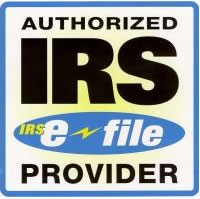Tips for Planning Next Year’s Return
For most taxpayers, the tax deadline has passed. But planning for next year can start now. Being organized and planning ahead can save time and money in 2014. Here are a few things you can do now to make next April 15 easier.
1. Consider Federal tax withholding. Federal law allows federal tax withholding on clergy compensation. Some small churches do not want to withhold tax and file quarterly payroll reports, but if your church able withhold tax for you, then consider taking the bite out of your end-of-year tax bill. Withholding tax on your paycheck will also lower your estimated tax payments. If you are already using withholding, now is a good time to review your amounts. Call me for a review or go on www.irs.gov to use the IRS Withholding Calculator to complete a new Form W-4, Employee’s Withholding Allowance Certificate.
2. Make estimated tax payments. Clergy compensation is subject to self-employment tax and making quarterly estimated payments is the method to pay in that tax throughout the year. Failing to make estimated payments, or underpaying estimated tax is likely to result in a penalty. Plan your budget to allow payments to be sent in on April 15, June 15, Sept 15 and Jan 15. Send in your payments with Form 1040-ES. You’ll be glad you did when it comes to the bottom line of next year’s return!
2. Store your return in a safe place. Put your 2012 tax return and supporting documents somewhere safe. If you need to refer to your return in the future, you’ll know where to find it. For example, you may need a copy of your return when applying for a home loan or financial aid. You can also use it as a helpful guide for next year’s return.
3. Organize your records. Establish one location where everyone in your household can put tax-related records during the year. This will avoid a scramble for misplaced mileage logs or charity receipts come tax time. Remember to keep good records of your housing or parsonage expenses for a maximum deduction for 2013.
5. Consider itemizing deductions. If you usually claim a standard deduction, you may be able to reduce your taxes if you itemize deductions instead. If your itemized deductions typically fall just below your standard deduction, you can ‘bundle’ your deductions. For example, an early or extra mortgage payment or property tax payment, or a planned donation to your church or favorite charity could equal some tax savings.


